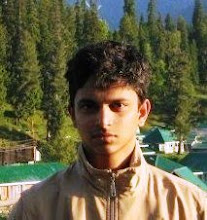The greatest rock 'n' roll band ever has deep ties with Indian spirituality
Nigel Britto
The Beatles weren't exactly religious. In 1966, when a journalist asked John Lennon what he thought of Christianity, the Beatle showed scant respect for the world's biggest religion. "We're more popular than Jesus now;I don't know which will go first-rock 'n' roll or Christianity, " he said, in what would later become his most famous remark. That quip went largely unnoticed at the time, though some radio stations in a few countries did ban the group. It was when the comment was republished in an American magazine later that year, out of context, that all hell broke loose, and the Beatles were condemned as being 'anti-Christ'.
The Fab Four are as well known for their rejection of mainstream religion as they are for their interest in eastern spirituality and India. That interest was fired in 1965, when they were filming Help!. There were Indian musicians playing on the sets, and George Harrison thought the sitar sounded "funny". He later bought one, and quite by chance used it to great effect in Norwegian Wood (This bird has flown). It was the first of three Beatles' songs with a classical Eastern sound, the other two being Love you too (Revolver) and The inner light, which was recorded in Mumbai, where Harrison was producing the soundtrack for the film Wonderwall in 1968.
India, which introduced itself to the Beatles through its music, then captivated the Fab Four with its spirituality. It all began in August 1967, when they attended a lecture by Maharishi Mahesh Yogi at the Hilton in London. Thoroughly entranced, they travelled with him to Bangor, Wales, to attend a series of seminars for 10 days. The Beatles left the series mid-way, after hearing of the death of Brian Epstein, the rock on which the group was founded. But the Welsh outing had sown a seed that was soon to blossom.
On Feb 16, 1968, Lennon and Harrison, with their wives Cynthia and Pattie Boyd, arrived in New Delhi. They made the 227-km taxi trip to the Maharishi's academy of transcendental meditation in the foothills of the Himalayas at Rishikesh. Paul McCartney and Ringo Starr arrived with their wives four days later. Once inside, it wasn't all smooth sailing. For one, the meditation sessions were very long, and McCartney later recalled in his biography Many Years From Now, by Barry Miles: "The difficulty, of course, is keeping your mind clear, because the minute you clear it, a thought comes in and says, 'What are we gonna do about our next record?' 'Go away!' Meditate, mantra mantra mantra. 'I still want to know what we're doing on this next record. ' 'Please go away, I'm meditating, can't you see?' There's inevitably all sorts of little conversations you can't help getting into. "
Life in the ashram was remarkably quiet for the four most popular men on the planet. A few photo ops were provided, but that was all. They were joined by Beach Boys' lead singer Mike Love and actress Mia Farrow, along with her siblings. Meals were in a glass-walled, open-roofed room, where monkeys sometimes joined them. Lennon and Harrison were vegetarians, but Starr found the food spicy, and had to be fed eggs. Some accounts say that cheap hooch (which tasted like petrol) was also smuggled in for the celebrities. Accounts of people who attended the ashram suggest the four were friendly, affable and humourous.
The days in the camp were some of the best for the Beatles as songwriters. They wrote so many songs, they wouldn't fit on one album. What resulted was the double album The Beatles, popularly known as The White Album. Even that couldn't accommodate all;the left-over songs were included in the Abbey Road setlist in 1969. Lennon wrote Dear Prudence for Mia Farrow's 19-year-old sister Prudence, who, suffering from depression, spent long periods of time meditating, which the Maharishi had warned against.
Ringo and wife left the camp within a fortnight, Ringo's problem with Indian food being the main culprit. Also, they missed their children, and his wife Maureen Starkey didn't like the insects. On March 26, Paul McCartney and Jane Asher left the camp, leaving only Lennon and Harrison, who left two weeks later. What exactly happened in those weeks remains a mystery to this day. Lennon alleged that the Maharishi misbehaved with Mia Farrow, and Harrison (the most 'Indian' of the four) apparently became disillusioned with the holy man's behaviour. The Beatles also thought he was too interested in fame and money, and accused him of making passes at women. The song Sexy Sadie (Sexy Sadie, what have you done/you made a fool of everyone) made their feelings public - Sexy Sadie probably being a euphemism for the Maharishi.
This was the accepted theory until 2006, when new-age thinker Deepak Chopra put the guilt ball firmly in the Beatles' court. He exploded the 'myth' of the Maharishi's promiscuity, saying that the guru asked the Beatles to leave after he found that they were doing drugs in his camp. Chopra also said he arranged a meeting between Harrison and the Maharishi in 1991, where the Transcendental Meditation guru forgave his former pupil. Harrison was the only Beatle who, till his death, kept in touch with Indian culture and spirituality. According to Chopra, the Maharishi said, "I knew the Beatles were angels on earth... I could never be upset with angels". Suspiciously, this revelation came after Harrison's death in 2001, so we will never know his side of the story.
This article was first published in The Times of India's Crest edition on August 14, 2010.


No comments:
Post a Comment